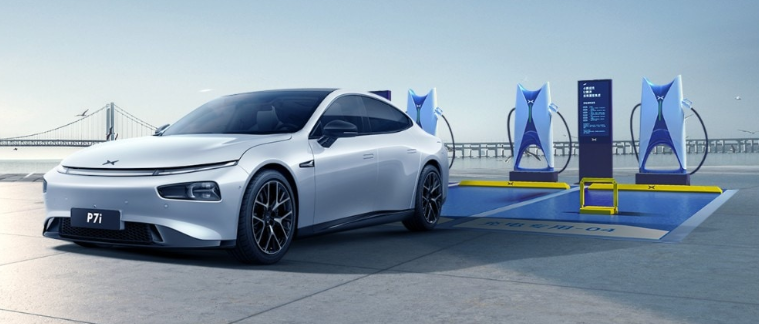Beijing city aims to deploy 1,000 supercharging stations by 2025
In a bid to accelerate the development of supercharging infrastructure and establish Beijing as a "charging-friendly city," the Beijing Municipal Commission of Development and Reform, in collaboration with the Beijing Municipal Commission of Urban Management, recently issued the "Implementation Plan for Accelerating the Construction of New Energy Vehicle Supercharging Stations in the City" (hereinafter referred to as the "Implementation Plan").

Photo credit: XPENG
The "Implementation Plan" outlines ambitious development goals: by the end of 2024, Beijing aims to build 500 supercharging stations across the city. By the end of 2025, the city plans to double this number, reaching a total of 1,000 stations.
The plan sets forth several key tasks:
Enhancing standards and regulations
The plan calls for the establishment of standards and operational guidelines for supercharging station construction and management in Beijing. It seeks to streamline the pre-construction registration and filing process and improve the comprehensive evaluation mechanism for charging facility quality and service standards. The plan encourages the open sharing of supercharging facilities, urging existing public charging facilities to open to the public, and mandating that newly planned facilities be fully open and shared with society.
Encouraging diverse participation
To accelerate the construction of a high-quality supercharging network, the plan recommends selecting top-tier enterprises to collaborate with companies in charging facilities, parking management, and property services. The approach follows the principle of "government sets the stage, enterprises participate voluntarily, and multiple parties get involved," with the goal of forming project consortia that enhance construction and operational efficiency.
Strengthening land use support
Each district in Beijing will identify suitable land within their regions for the construction of supercharging stations, focusing on public parking lots, transportation hubs, and unused land. The plan also supports the use of state-owned enterprises' resources, such as bus depots, existing gas stations, sanitation stations, heating stations, and expressway service areas, for supercharging station construction.
Reinforcing power supply security
The city will establish a mechanism to ensure the power supply for supercharging stations, coordinating and addressing key challenges in the connection process. The plan also seeks to optimize the power expansion approval mechanism. Power grid companies will assess the electricity access capacity for new supercharging stations on a "one station, one assessment" basis.
Promoting technological and mechanism innovation
Within the framework of safety regulations, the plan advocates for the construction of integrated stations combining solar power, energy storage, charging, and battery swapping. It encourages the integration of supercharging station platforms with vehicle-to-grid interaction platforms, participation in grid demand response, and the absorption of green electricity. The plan also supports linkage with virtual power plant construction, contributing to the development of a resilient digital energy city.
Enhancing safety management
The plan emphasizes the importance of safety management throughout the construction process of supercharging stations. It calls for the enhancement of safety standards and increased regulatory oversight. The city will expedite the construction of a unified "vehicle, pile (station), and network" integrated management service platform, ensuring that all charging facilities, including supercharging stations, are connected to the platform according to the principle of "connect where needed."

